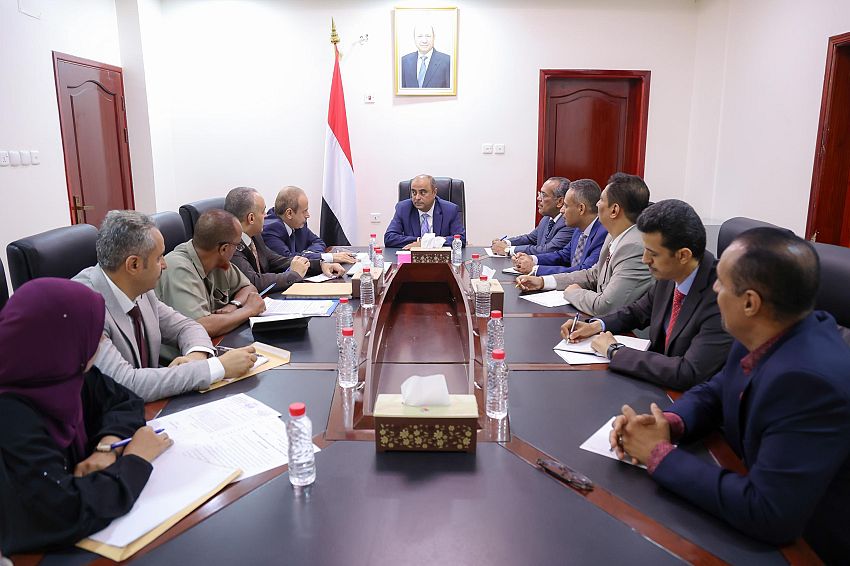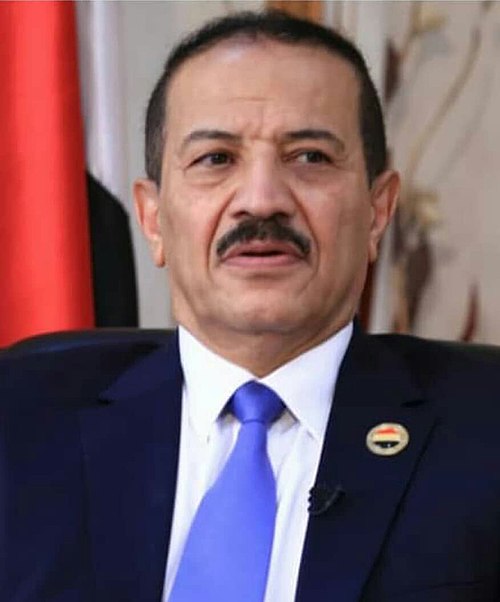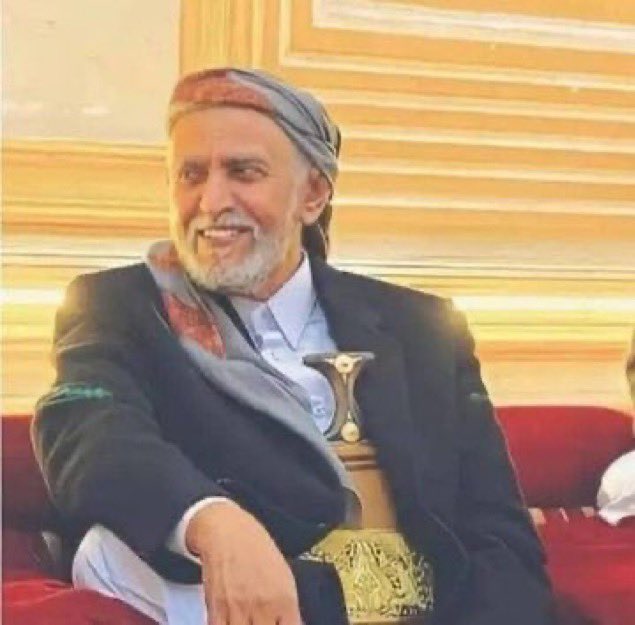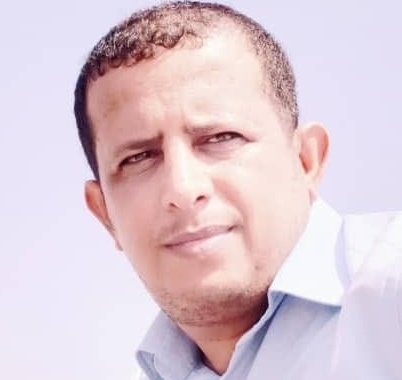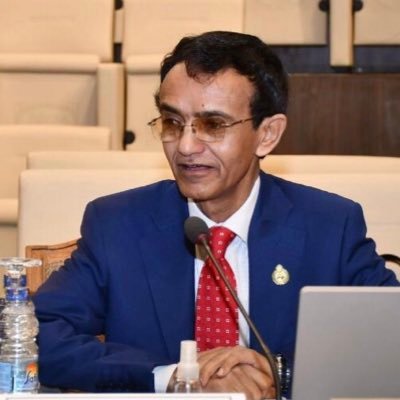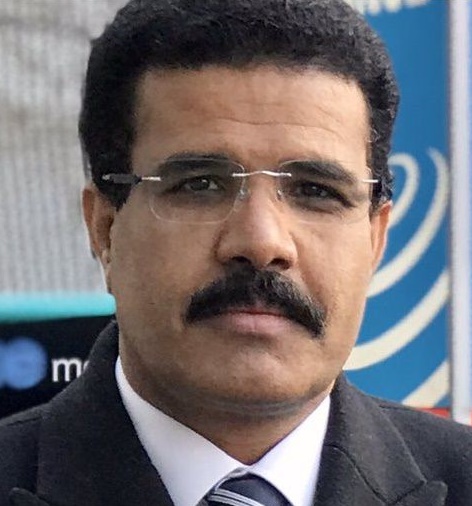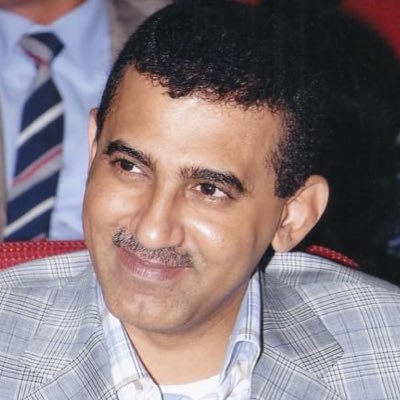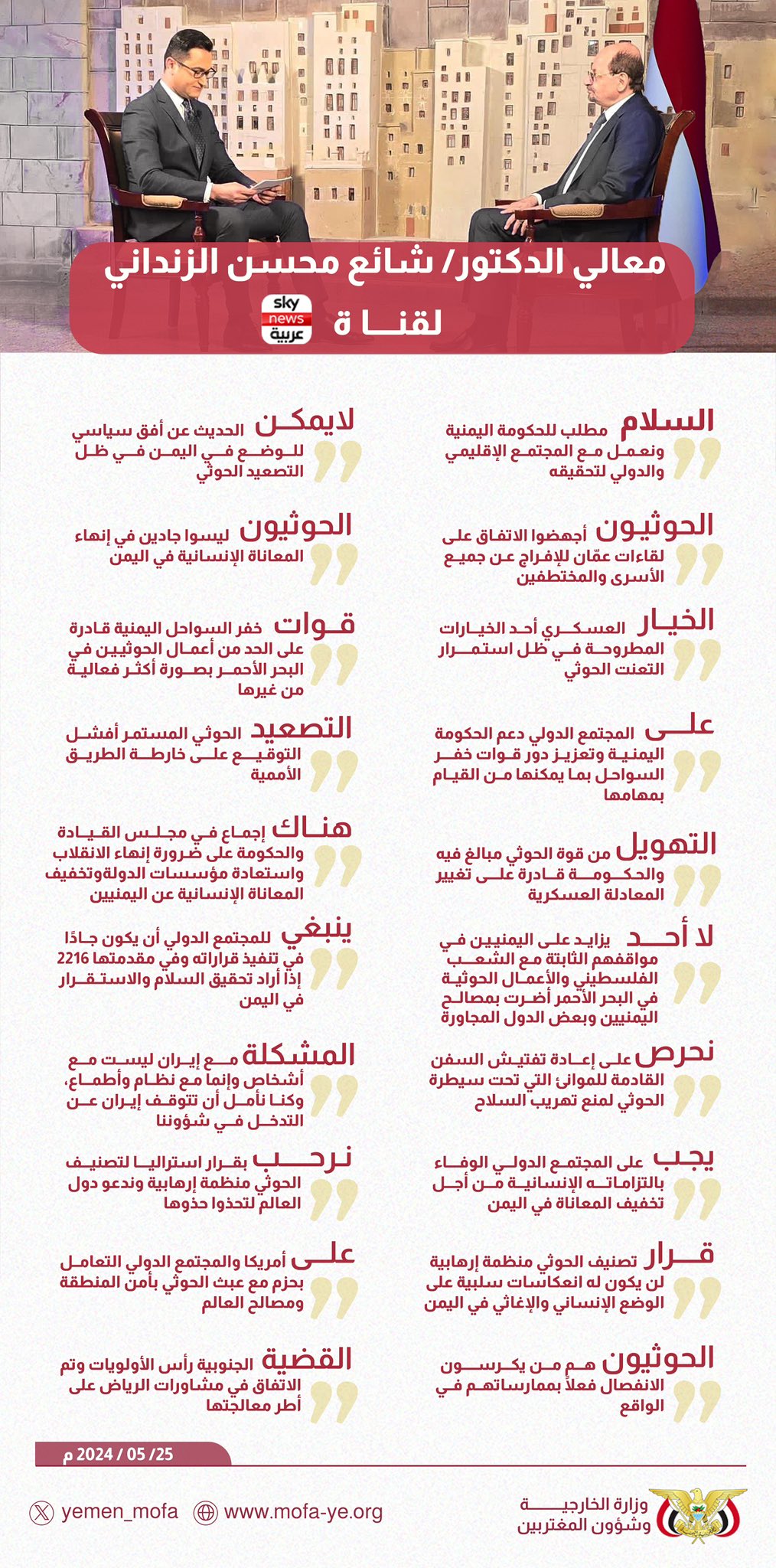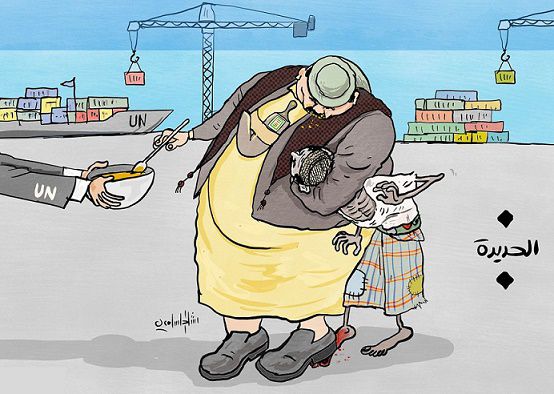حظر الأسلحة ضروري لوقف تصدير إيران للموت والفوضى على المجتمع الدولي واجب وضع حد لتهديد السلام العالمي
بقلم: وزير الإعلام اليمني الدكتور معمر الإرياني.
تعقد الدورة الخامسة والسبعون للجمعية العامة للأمم المتحدة في مقر المنظمة بنيويورك في سبتمبر ، ومن بين الموضوعات المدرجة على جدول الأعمال قرار مجلس الأمن رقم 2231 لعام 2015 ، والذي بموجبه صادقت الأمم المتحدة على الاتفاق النووي الإيراني ، أو تُعرف باسم خطة العمل الشاملة المشتركة (JCPOA).
وتتزامن جلسات الجمعية العامة ومجلس الأمن لهذا العام مع عدد من الأنشطة رفيعة المستوى التي تمتد من منتصف سبتمبر إلى بداية أكتوبر، بما في ذلك الاحتفال باليوم الدولي للإزالة الكاملة للأسلحة النووية في 26 سبتمبر.
وتحسبا لما قد يحدث فيما يتعلق بالقرار 2231 - الذي بموجبه تنتهي القيود المفروضة على تصدير وشراء إيران للأسلحة التقليدية في 18 أكتوبر - قدمت الولايات المتحدة إلى مجلس الأمن قبل أيام قليلة مشروع قرار لتمديد حظر الأسلحة المفروض على إيران إلى أجل غير مسمى، ولكن دولتين فقط صوتتا لصالحه وامتنعت 11 دولة عن التصويت، ورفضت روسيا والصين الإجراء.
وكانت الولايات المتحدة قد أشارت إلى أنه في حالة فشل مشروع القرار ، فإنها ستعيد فرض جميع العقوبات التي كانت الأمم المتحدة قد رفعتها عن إيران بموجب الاتفاقية النووية.
للولايات المتحدة أسبابها للضغط من أجل استمرار حظر الأسلحة على إيران. ونحن في العالم العربي ، وخاصة في اليمن ، لدينا أسباب أكثر إلحاحًا لنضم أصواتنا في المطالبة باستمرار العقوبات.
إن رفع الحظر عن بيع وتوريد ونقل الأسلحة والمواد المتعلقة بالصناعات العسكرية إلى إيران سيمثل هدية مجانية للنظام. وسيسمح لها بنشر الفوضى والإرهاب في المنطقة وتزويدها بالموارد المالية لتوسيع أنشطتها التخريبية. وهذا من شأنه أن يشكل مصدر تهديد إضافي لأمن واستقرار المنطقة والعالم ، وضربة موجعة لجهود إحلال السلام.
بالإضافة إلى ذلك ، فإن استئناف مبيعات الأسلحة والإمدادات لإيران يعني ضخ المزيد من الزيت على نيران الصراعات في المنطقة من خلال تهريب الأسلحة إلى الميليشيات الطائفية والتنظيمات الإرهابية وعلى رأسها الحوثيون وحزب الله والقاعدة وداعش ، واستخدامها لاستهداف مصادر الطاقة والممرات الملاحية الدولية ، وتهديد الأمن والسلم الإقليميين والدوليين.
وشهد العالم أدلة على حيازة أسلحة إيرانية الصنع بأيدي منظمات إرهابية ، بما في ذلك ميليشيا الحوثي في اليمن ، عندما أطلع الأمين العام للأمم المتحدة أنطونيو غوتيريش مجلس الأمن على أن الأمم المتحدة فحصت حطام الأسلحة المستخدمة في الهجمات على منشأة نفطية في عفيف وفي مطار أبها الدولي ، وعلى منشأتين نفطيتين لشركة أرامكو ، في خريص وبقيق ، وكلها في المملكة العربية السعودية.
وقال جوتيريس: "تقدر (الأمانة العامة للأمم المتحدة) أن صواريخ كروز و / أو أجزاء منها استخدمت في أربع هجمات كانت من أصل إيراني".
بدورها ، كشفت وزارة الدفاع الأمريكية ، تفاصيل شحنتي أسلحة إيرانية الصنع كانت البحرية الأمريكية قد ضبطتهما في بحر العرب وكانتا في طريقهما إلى الحوثيين في اليمن.
قال المتحدث باسم القيادة المركزية الأمريكية ، الكابتن البحري ويليام أوربان ، في إيجاز صحفي في 19 فبراير 2020 ، إن صواريخ كروز وقاذفات الطائرات المسيرة كانت من بين الأسلحة التي تم ضبطها على ظهر سفينة إيرانية في نوفمبر الماضي ، وكانت مطابقة لتلك المستخدمة في الهجوم على منشآت أرامكو منتصف سبتمبر 2019.
وأشار أوربان إلى أن اعتراض السفن الشراعية في البحر من قبل يو إس إس فورست شيرمان في نوفمبر 2019 ويو إس إس نورماندي في فبراير 2020 يتوافق مع نمط ثابت من السفن المستخدمة في نقل الأسلحة لمليشيا الحوثي ، وبحسب التقييم فإن إيران مسؤولة عن تخطيط وتنظيم وتصنيع هذه الشحنات.
هذا بالإضافة إلى استخدام مليشيات الحوثي للألغام والعبوات الناسفة المحظورة وفق القانون الدولي الإنساني. دعمت إيران هذه التكنولوجيا العسكرية ولا تزال تدعمها ، ومن بين ضحاياها منذ انقلاب الحوثيين في 2014 نحو 8000 قتيل مدني معظمهم من النساء والأطفال ، وعشرات الآلاف من مبتوري الأطراف المعوقين بشكل دائم ، بحسب تقرير مركز المعلومات والتأهيل لحقوق الإنسان الصادر في 2020.
إن فشل مجلس الأمن في المصادقة على القرار الذي قدمته الولايات المتحدة بتمديد عقوبات الأسلحة المفروضة على إيران أمر مؤسف ومحبط لشعوب المنطقة. لقد عانوا كثيراً نتيجة السياسات العدائية لنظام طهران ووقوفه وراء الفوضى والعنف الناتج عن إنشاء وتشغيل ميليشيات طائفية لزعزعة الأمن والنظام المدني في الدول العربية وتصدير الإرهاب وتهديد المصالح الدولية.
لقد دفعت اليمن واليمنيون ثمناً باهظاً للتدخلات الإيرانية. وقدمت هذه التدخلات لمليشيا الحوثي تكنولوجيا عسكرية تشمل الصواريخ الباليستية والطائرات المسيرة ، وخبراء في تصنيع الألغام والعبوات الناسفة. كما تضمنت جهودًا لتحويل الأراضي اليمنية إلى منصة لاستهداف الدول المجاورة ، وتهديد مصادر الطاقة وممرات الشحن الدولية في البحر الأحمر وبحر العرب ، والسيطرة على مضيق باب المندب.
لقد دفعت دول عربية أخرى مثل العراق ولبنان وسوريا والمنطقة والعالم أجمع منذ سنوات ثمناً باهظاً للسياسات العدائية التي انتهجها النظام الإيراني والحرس الثوري منذ الثورة الخمينية ، فضلاً عن محاولات تصدير الثورة. وفرض السيطرة على الدول بقوة السلاح والميليشيات الطائفية ونشر الفكر الإرهابي المتطرف.
في ضوء كل هذا ، على المجتمع الدولي ، وفي مقدمته الأعضاء الدائمين وغير الدائمين في مجلس الأمن ، واجب التصرف وفقًا لمبادئ ميثاق الأمم المتحدة لصون السلم والأمن الدوليين ، ووضع حد لمقتضيات تهديد السلام العالمي ، وتطبيق مبدأ عدم التدخل في الشؤون الداخلية للدول وحماية استقلالها وسيادتها.
وفي إطار ذلك ، فإن على المجتمع الدولي واجب مواجهة الإرهاب ومنع بيع وتصدير الأسلحة للنظام الإيراني ، وهي أسلحة ستنتهي بلا شك في أيدي الميليشيات الطائفية والمنظمات الإرهابية ، بما في ذلك مليشيات الحوثي، التي ستستخدمها لقتل المزيد من اليمنيين وتقويض الجهود المبذولة لإنهاء الحرب في اليمن وإحلال السلام في البلاد.
Arms Sanctions Essential to Halting Iran’s Export of Death, Chaos
International community has duty to put an end to threat to world peace
The 75th session of the UN General Assembly will open at the organization’s headquarters in New York in September, and among the issues on the agenda will be Security Council Resolution 2231 of 2015, according to which the United Nations approved the Iranian nuclear agreement, or what is known as the Joint Comprehensive Plan of Action (JCPOA).
This year’s General Assembly and Security Council sessions coincide with a number of high-level activities that extend from mid-September to the beginning of October, including the celebration of the International Day for the Total Elimination of Nuclear Weapons on September 26.
In anticipation of what might happen regarding Resolution 2231 – according to which restrictions imposed on the export to, and purchase by, Iran of conventional weapons expire on October 18 – the United States submitted to the Security Council a few days ago a draft resolution to extend the arms embargo on Iran indefinitely, but only two countries voted in favor. Eleven countries abstained, and Russia and China rejected the measure.
The US had indicated that in the event the draft resolution failed, it would reimpose all sanctions that the United Nations had lifted on Iran under the nuclear agreement.
The United States has its reasons for pushing for the continuation of the arms sanctions on Iran. We in the Arab world, and especially in Yemen, have even more pressing reasons to join our voices in calling for the continuation of the sanctions.
Lifting the embargo on selling, supplying and transporting weapons and materials related to military industries to Iran would represent a free gift to the regime. It would allow it to spread chaos and terrorism in the region and provide it with the financial resources to expand its subversive activities. This would constitute an additional source of threats to the security and stability of the region and the world, and a painful blow to efforts to establish peace.
In addition, the resumption of arms sales and supplies to Iran means pouring more oil on the fires of conflicts in the region through the smuggling of weapons to sectarian militias and terrorist organizations, led by Houthis, Hizbullah, al-Qaida and ISIS, and using them to target energy sources and international shipping lanes, and to threaten regional and international security and peace.
The world saw evidence of the possession of Iranian-made weapons in the hands of terrorist organizations, including the Houthi militia in Yemen, when UN Secretary-General António Guterres briefed the Security Council that the United Nations had examined debris from weapons used in attacks on an oil facility in Afif, at Abha International Airport, and on two Aramco oil facilities, in Khurais and Abqaiq, all in Saudi Arabia.
Guterres said: “The [United Nations General Secretariat] estimates that cruise missiles and/or parts of them used in four attacks were of Iranian origin.”
In turn, the US Defense Department revealed the details of two Iranian-made weapons shipments that the US Navy had seized in the Arabian Sea and which were on their way to the Houthis in Yemen.
The spokesman for the US Central Command, Navy Capt. William Urban, said in a press briefing on February 19, 2020, that cruise missiles and drone launchers were among the arms seized on the deck of an Iranian ship last November, and were identical to those used in the attack on Aramco facilities in mid-September 2019.
Urban indicated that the interceptions of the dhow sailing vessels at sea by the USS Forrest Sherman in November 2019 and the USS Normandy in February 2020 correspond to a consistent pattern of ships used to transport weapons to the Houthi militia, and according to the assessment, Iran is responsible for planning, organizing and manufacturing these shipments.
This is in addition to the Houthi militia’s use of mines and improvised explosive devices, which are banned according to international humanitarian law. Iran has supported and continues to support this military technology, and its victims since the Houthis’ coup in 2014 include about 8,000 slain civilians, mostly women and children, and tens of thousands of permanently disabled amputees, according to a report of the Human Rights Information and Training Center issued in 2020.
The failure of the Security Council to endorse the US-introduced resolution to extend the arms sanctions imposed on Iran is unfortunate and disappointing for the peoples of the region. They have suffered greatly as a result of the Tehran regime’s hostile policies and its standing behind the chaos and violence produced by the establishment and operation of sectarian militias to undermine security and civil order in Arab countries, export terrorism and threaten international interests.
Yemen and the Yemenis have paid a heavy price for Iranian interventions. These interventions have provided the Houthi militia with military technology that includes ballistic missiles and drones, and experts in the manufacture of mines and explosive devices. They have also included efforts to transform Yemeni territory into a platform to target neighboring countries, threatening energy sources and international shipping lanes in the Red Sea and the Arabian Sea, and controlling the Bab el-Mandeb strait.
Other Arab countries such as Iraq, Lebanon and Syria, the region and the whole world have for years paid a heavy price for the hostile policies adopted by the Iranian regime and the Revolutionary Guards since the Khomeinist revolution, as well as attempts to export the revolution and impose control over countries through force of arms, sectarian militias and the spreading of extremist, terrorist ideology.
In light of all this, the international community, foremost among it the permanent and nonpermanent members of the Security Council, has a duty to act in accordance with the principles of the United Nations Charter to maintain international peace and security, put an end to the threat to world peace, apply the principle of noninterference in the internal affairs of states and protect their independence and sovereignty.
As part of this, the international community has a duty to confront terrorism and prevent the sale and export of weapons to the Iranian regime, weapons that no doubt will wind up in the hands of sectarian militias and terrorist organizations, including the Houthi militia, which will use them to kill more Yemenis and undermine efforts to end the war in Yemen and bring peace to the country.
TheMediaLine - Minister Moammar Al-Eryani



